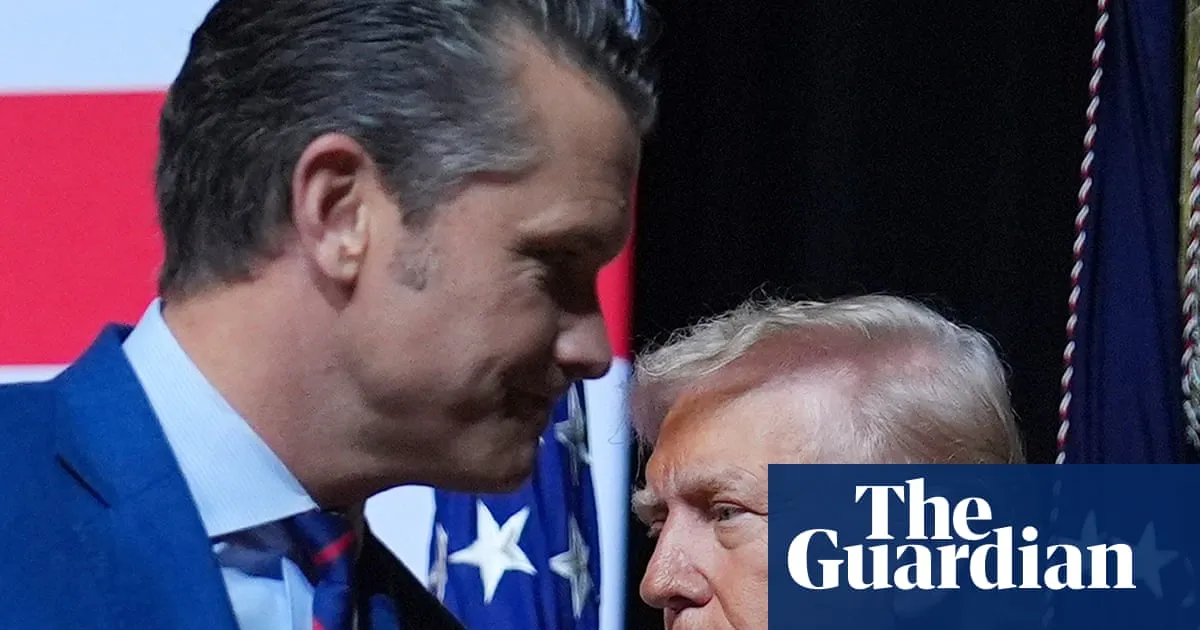
In a significant address to a gathering of assembled generals and admirals, US Defense Secretary Pete Hegseth outlined a series of sweeping changes aimed at reforming military policy and organizational culture. The set of 10 directives is designed to reshape attitudes around fitness, race, and gender within the armed forces, which Hegseth criticized as having become the “woke department.” His remarks signal a clear shift towards a more traditional military ethos and a rejection of recent progressive influences.
Following Hegseth’s address, former President Donald Trump echoed the call for a renewed emphasis on military lethality. During a lengthy, campaign-style speech, Trump controversially suggested that the military should consider using US cities, particularly those he described as “dangerous,” as training grounds. He specifically mentioned Chicago and criticized its governor, JB Pritzker, stating, “We should use some of these dangerous cities as training grounds for our military.”
Trump further inflamed the audience by discussing the treatment of soldiers in the public eye, saying they should be allowed to respond to provocations. “They spit, we hit. Is that OK? I think so,” he asserted. His remarks, which also included a defense of the Navy’s actions against Venezuelan boats, painted a picture of a military willing to operate beyond traditional constraints.
While Trump’s speech was filled with personal political commentary, Hegseth’s address concentrated more on the critical aspects of military culture. He dismissed the notion that “diversity is our strength” and expressed his intention to remove military leaders who are seen as proponents of progressive policies. “It’s nearly impossible to change a culture with the same people who helped create or benefited from that culture,” Hegseth stated, indicating that he expects further departures from the military ranks.
In his remarks, Hegseth acknowledged that he has already dismissed several generals and admirals, with a notable number being Black or women, including the Chair of the Joint Chiefs, CQ Brown. He emphasized the need for a colorblind and merit-based promotion process, asserting that the military would be reviewing its policies to eliminate any racial quotas while ensuring that all personnel can serve without facing discrimination.
In a bid to foster a more robust military environment, Hegseth announced that the Pentagon would overhaul its inspector general and equal opportunity office rules to minimize complaints, which he referred to as “frivolous.” His “no more walking on eggshells policy” aims to encourage a more open atmosphere, free from minor infractions derailing careers.
The convening of so many flag officers for this address is unprecedented, with Hegseth aiming to deliver a message not just to military members but to the public as well. His rhetoric included jingoistic sentiments, asserting that the military must be prepared to crush its enemies with “violence, precision, and ferocity.”
Hegseth underscored the importance of returning to rigorous training standards established in 1990, emphasizing that women in combat roles must meet the same physical standards as their male counterparts. “War does not care if you are a man or a woman,” he stated, reflecting a commitment to equality in military readiness.
Drill sergeants will be empowered to adopt a more intense approach to training, including the controversial “shark attack” method, which involves instructors ganging up on recruits to instill discipline and resilience. Hegseth also indicated that the rules of engagement would be reassessed, aiming to “untie the hands of our war fighters” and enable them to act decisively in combat situations.
Among his early actions as Secretary of Defense, Hegseth has removed or reassigned many military lawyers who traditionally advise on the legality of operations. He has appointed his personal lawyer, Tim Parlatore, as a navy commander to facilitate changes in legal advice, potentially allowing commanders more latitude in pursuing aggressive military tactics.
Overall, Hegseth's bold initiatives reflect a commitment to redefining military culture and operational protocols, prioritizing strength and readiness in an era marked by complex challenges. As the military embarks on this transformative journey, the implications for both personnel and national security remain to be seen.